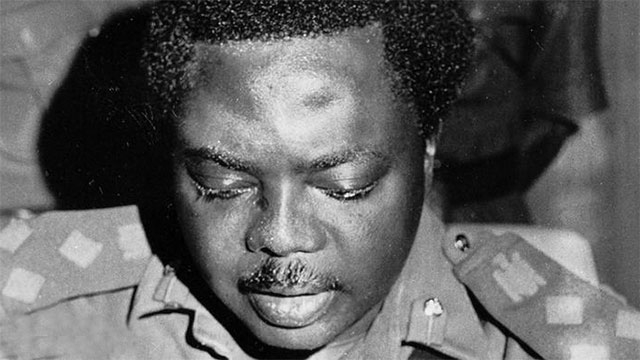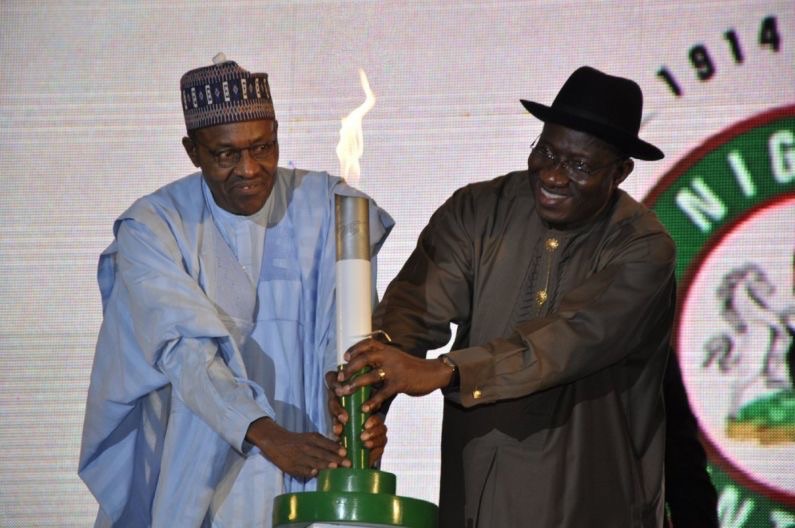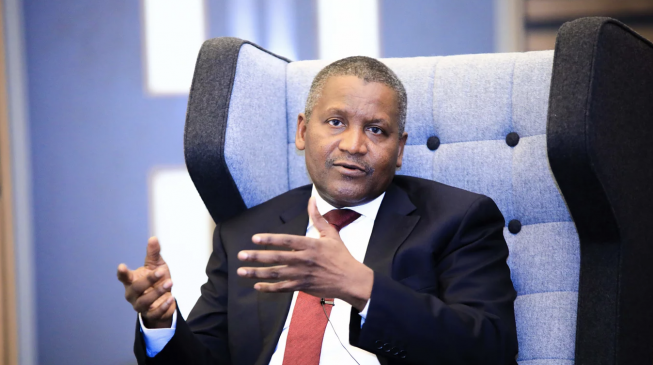Whither the Interim Common Services Agency and Esiala

By Eric Teniola
These days Esiala and the Interim Common Services Agency mean nothing to many people. Yet, years ago, these two agencies dominated the headlines in this country.
In a televised address to the nation on July 30, 1975, the then Head of State, General Murtala Ramat Mohammed(8 November 1938-13 February 1976), GCFR, said that “a panel will be set up to advise on the future of the Interim Common Services Agency (ICSA) and the Eastern States Interim Assets and Liabilities Agency (ESIALA)”.
Esiala was set up to take over the assets and Liabilities of the old Eastern Region. The states created out of the region now comprise nine states namely, Abia, Ebonyi, Akwa Ibom, Bayelsa, Cross River, Imo, Anambra, and Enugu states. At that time Eastern region was very rich in terms of mineral resources and industries. They included the Nkalagu Cement Factory, the African Continental Bank, the Eastern Marketing Board, the Eastern Marketing Development Corporation, West African Institute for Oil Palm Research, Nigerian Breweries Stout Factory at Aba, Tobacco and Glass Making Plant at Port-Harcourt, Farm Settlements at Ohaji, Igbariam, Boki, Ulonna, Erei, Uzo-Uwani and Gbema, Nigerian Coal Corporation in Enugu, Rice Farms at Abakaliki and Ogoja and many other projects. Under Decree 39 promulgated by General Yakubu Gowon on June 24, 1970, the University of Nigeria, Nsukka, established by Dr. Nnamdi Azikiwe but opened on October 7, 1960, was listed as part of the assets of the Eastern Interim Assets and Liability Agency.
At the time General Yakubu Gowon (86), GCFR, split the Eastern region, he also promulgated Decree Number 8 transferring the services of civil servants of the old Eastern Region into the Federal Public service. The decree empowered the Public Service Commission of the Federation to transfer, subject to certain terms and conditions, any officer from the public service of a former Region to the public service of the Federation. 2. Under the decree, any officer assigned to the Interim Common Services Agency shall be deemed to have transferred to the public service of the Federation, and on the expiration of the life of the Interim Common Services Agency, or the Eastern States Assets and Liabilities Agency, that Commission may terminate the appointment of an officer of such Agency or, where appropriate, retire him from the public service of the Federation. 3. The Decree provides that where the holder of a pensionable office in the public service of a former Region had been assigned to perform the duties of any office, other than public service or service with the Agencies aforesaid, the Commission may transfer the officer to that office, and thereupon the officer shall be deemed to have transferred to an “approved service”, within the meaning of the Pensions Act. 4. The Decree also provides that pension payable by the government of a former Region for any period of service commencing on or after 1st October 1954 and ending immediately before the appointed shall now become the liability of the Federal Government.
General Yakubu Gowon, GCFR, created three states out of the whole eastern region. They are South Eastern state, East-Central state, and Rivers state. For the East-Central state, he named Dr. Anthony Ukpabi Asika (1936-2004) as the administrator, Brigadier Udoakaha Jacob Esuene (1936-1993) as the governor of South-Eastern state, and Lieutenant Commander Alfred Papapreye Diete-Spiff (79) as the governor of Rivers state. Alfred Diete-Spiff is an Ijaw from Bayelsa State and the Amayanabo (King) of Twon-Brass, Bayelsa State. A stadium was named in honor of Brigadier Esuene in Calabar. His wife, Helen Esuene was appointed Minister of State for health in July 2005 by former President Olusegun Obasanjo, GCFR, a close friend of late Brigadier Esuene. In January 2006, former President Olusegun Obasanjo also appointed Mrs. Esuene as Minister of Environment and later Minister of Environment and Housing. She was elected Senator in 2011. Brigadier Esuene and Mrs. Esuene are both from Eket in Akwa Ibom, my favorite city.
In 2004, my assistant, Mr. Seyi Olowookere, who recently retired as a director in the Civil Service and I accompanied my late boss, Chief Ufot Ekaettte, CFR, the Secretary to the Government of the Federation for the burial of Dr. Ukpabi Asika in Onitsha.
On 27th May 1967, General Yakubu Gowon also promulgated Decree No 7. It states that 1. All rights, interests, obligations, and liabilities of any former Regional Government in any of the premises specified in the Schedule to this Decree shall be deemed, with effect from 27th May 1967, to have vested in and devolved upon the Federal Military Government. (2) The Higher Commissioner for Nigeria in London is hereby authorized as agent and representative of the Federal Military Government to take such action (whether by way of executing deeds or other documents or otherwise) as may in his opinion be necessary or expedient for the proper management or disposal of any of the said premises. 2. In this Decree “former Regional Government” means the Government of a former Region of Nigeria and includes, about any such Region, the Governor, Military Governor, Agent-General or any other officer or person holding property in trust for or otherwise on behalf of the Region or its Government. 3— (1) This Decree may be cited as the Former Regional Governments (Disposal of Certain Properties) Decree 1971 and shall apply throughout the Federation and elsewhere to the extent necessary to give it proper effect. 2. This Decree shall be deemed to have come into force on 27th May 1967.
General Gowon took over the properties of the eastern region on behalf of the central government.
The properties of the region taken over in London were No 113, Hendon Way, N.W.2, No 142, Cheviot Gardens, London, N.W.2, No 176, The Vale, London, N.W. 11, No. 104, Cotswold Gardens, London, N.W.2, No 105, Cotswold, Garden, London, N.W.2, No 15a, Kessington Gardens, London, W.8, No 17, Chester Street, London, S.W.1, No. 35, Phillimore Gardens, London, W.8, Nos. 178/202, Great Portland Street, London, W.1, No.23 Phillimore Gardens, London.8, Nos 257, The Vale, London, N.W.11, No.2, Tanfield Avenue, London, N.W. 2, No 35, Woodstock Road, London, N.W.11, No 93, Chatsworth Road, London, N.W. 2, Nos69/69a, St. Paul’s Avenue, London, N.W.2 and No. 73, Priory Park Road, London N.W. 6.
I do not know when last the Governors of Akwa Ibom, Rivers, Bayelsa, Imo, Ebonyi, Enugu, Abia, Cross River, and Anambra states met to discuss ESIALA. I do not know what happened to those properties and assets seized by General Gowon in 1967 on behalf of the Federal Government.
The governors should meet to discuss this issue for they are part of the legacy of the old eastern region. Some of these properties are still standing in London till today. The Premiers of the Old Eastern Nigeria, Dr. Nnamdi Azikiwe (16 November 1904 – 11 May 1996), GCFR, and Dr. Michael Okpara and their political party, NCNC, laboured so hard to establish the properties and institutions listed above. Something needs to be done on ESIALA today. Apart from political party affiliation, the PDP, I do not think there is a platform that unites the old Eastern Nigeria together again. That should not be so. The spirit of the old Eastern Region should not be allowed to die. The old Eastern Region was the envy of the rest of the country years ago.
The Interim Common Services Agency (ICSA) was established when six new states in the old Northern Region, were created by decree No 9 of May 27, 1967, by General Yakubu Gowon. It was through that decree that he created twelve states in the country out of the four regions in Nigeria. Specifically, he created six states out of Northern Region namely the North-Western state made up of Niger and Sokoto, the North-Eastern state made up of Adamawa, Bauchi, Borno, and Sardauna, North Central state made up of Katsina, Zaria, and Kaduna. Kwara state made up of Ilorin and Kabba, Kano state made up of Kano Emirates, Benue/Plateau state made up of Benue and Plateau areas.
In setting up the Agency, General Gowon appointed General Hassan Usman Katsina (31 March 1933-July 24, 1996) as the Chairman. General Katsina was the son of the Emir of Katsina, Alhaji Usman Nagogo.
General Katsina had earlier served as the Military Governor of the Northern Region. General Gowon then appointed the following as Military Governors. Kwara state-Colonel Femi David Lasisi Bamigboye (1940-2018), Kano state-Police Commissioner Audu Bako (1924-1980), North Eastern state, Brigadier Musa Usman (1940-1991), North Central state- Brigadier Abba Kyari (1930-2018), Benue-Plateau state-Police Commissioner Joseph Dechi Gomwalk (1935-1976) and North Western, Assistant Police Commissioner Usman Farouk (86). General Gowon ruled that “this decree may be cited as the Interim Common Services Agency Decree 1968 and shall continue in force for a period of two years and unless sooner extended by the Head of the Federal Military Government (by order) if he thinks fit for a period not exceeding at any one time, one year, it shall then expire”. Section 1 of the States (Creation and Transitional Provisions) (Amendment) (No. 2) Decree 1967 shall be construed as if in respect of the former territory of Northern Nigeria, the references to the vesting of property to that former territory were references to the vesting of property in the states under the Interim Common Services Agency Decree 1968 and references to a council in the Decree of 1967 aforesaid in respect of that former territory were references to the agency under the Decree of 1968 aforesaid. The following amendments consequential on this Decree shall have effect, that is to say,– (a) references in the Interim Administrative Councils Decree 1967 shall however worded be construed in respect of the states under this Decree (but not otherwise) as references to “the agency under this Decree; (b) for all words in section 1 (1) (a) of the Decree aforesaid after the words “Northern Region” up to the end of the paragraph, there shall be substituted the words “an agency, the members of which shall be appointed under the Interim Common Services Agency Decree 1968”; (c) section 1 (2) to (6) of the Decree aforesaid shall cease to apply in respect of the states under this Decree (8) The Interim Administrative Councils (Amendment) (No. 2) Decree 1967 is hereby repealed.
General Gowon then listed the properties owned by the Interim Agency. They are Advanced Teachers Training College, Kano and Zaria, Agricultural Field Surveys, Development of Agricultural Mechanical Technique Unit, Forestry School, Jos, Government Press, Kaduna, High Courts, Industrial Development Centre, Samaru, Land Use Surveys, Leprosy School, Zaria, Mechanical Workshops, Kaduna and Jos, Native Authority Wing of Northern Police College, Office of Adviser on Community Development, Office of Legal Draftsman, Overseas commitments outstanding in respect of in-service training, Road Surveys, Savannah Area Surveys, Scholarship outstanding, Sharia Court of Appeal, Small Industries Credit Organisation, Smallpox and Measles Campaign, Study Group set up in respect of Native Authorities Loans Authority and Native Authorities’ Pension Fund, Survey Services and records, Valuation Unit and Water Supplies Depot, Kaduna, Agricultural Extension Research Liaison Service, Samaturu, Community Nurses T:raining School, Kaduna, Dispensaries, Kaduna, Samaru and Zaria, General Kaduna, General Hospital, Malumfashi, General Zaria, Hospital Training Schools for Midwives, Kaduna, Hospital Training for Nurses Kaduna and Zaria, Livestock Services Training Centre, Kaduna, Medical Auxiliaries Training School, Kaduna; Nurses Training Schools, Kaduna md Kano, Nursing Home, Kaduna, Orthopedic Hospital, Kano, Pathological Laboratory, Kaduna, School of Hygiene, Kano, School of Pharmacy, Zaria, School of Agriculture, Kabba and Samaru, Community Development Institute, Co-operative Training Centre, Zaria, Irrigation School Sokoto, Local Government Training Centre Zaria, Polytechnic Kaduna, Social Welfare Training Centre, Zaria, Staff Development Centre, Kaduna, Ahmadu Bello University, livestock and Meat Authority, Native Authorities Loans Authority, Northern Nigeria Housing Corporation, Northern Nigeria Marketing Board, Northern Nigeria Radio Corporation, Ahmadu Bello Stadium, Hides, Skins and Leather Project, Laboratory Investigation Service, Locust Control, Meat Inspection (other than the inspection of meat for consumption in Nigeria), Motor Licensing (other than in respect of Benue/Plateau State), Queles Birds Control, Schools Broadcasting, Trypanosomiasis and Sleeping Sickness Control, Soil Conversation projects other than local soil conservation schemes, Vehicle Inspection (other than in respect of Benue/Plateau State), Bank of the North and the New Nigeria Development Company Limited (NNDC).
The New Nigeria Development Company Limited (NNDC) is a financial conglomerate owned by the nineteen northern states of Nigeria to facilitate investment development in the region and Nigeria at large. The corporation’s business portfolios capture various sectors of the northern economy including agriculture, oil and gas, capital market and investments, solid minerals, real estate, hotel management, construction, telecommunications, and information technology. It aims at achieving commercial and industrial development in all the nineteen northern states.
The company’s story began in 1949 when the Northern Region Production Development Board (NRPDB) was created by the British colonial government to expand agricultural resources for export. With intense engagement in agricultural support facilities, the board succeeded in providing agricultural extension services, road projects, motor parks, markets, and agricultural settlement schemes. In 1956, it redefined its focus by moving away from export commodities production to the overall development of economic activities in the region under the nomenclature, the Northern Region Development Corporation (NRDC).
With the actualization of self-government in 1960, the firm sought to re-assert itself in Nigeria’s economic space and progressed towards achieving a legal status as a corporation to become the Northern Nigeria Development Corporation (NNDC). At this point, the company had become the development finance house, providing socio-economic assistance to stimulate industrial growth in the north. Five years later, it became incorporated.
In 1976, the New Nigeria Development Company (NNDC) was created in place of the Northern Nigeria Development Corporation, amidst a new political order that restructured the Northern Region into sixteen (16) states. The new order involved the incorporation of the company as a limited liability company and an expansion of its portfolios. Thereupon, NNDC commenced its new financial role in the north requiring it to provide services on development banking operations for the new states. Today its activities are cherished in the north, with its shareholders spreading across all the current 19 states in the region—Adamawa, Bauchi, Benue, Borno, Gombe, Jigawa, Kaduna, Kano, Katsina, Kebbi, Kogi, Kwara, Nassarawa, Niger, Plateau, Sokoto, Taraba, Yobe and Zamfara.
The management of the Company was sacked on July 23, 2018, by the Chairman of Northern Governor Forum and former Governor of Borno state, Kashim Shettima. Before the sack, the company was led by its former Managing Director, Dr. Ahmed Musa Mohammed. The Chairman of the company was Alhaji Bashir Dalhatu. Other members of the management are executive directors Abbas A. Waziri (corporate planning and business development), Mrs. Kaneng Dokotri Adole (management services directorate), Abdullahi Ali Gombe, (investment supervision directorate), as well as Barrister Barnabas Baba (company secretary/legal adviser). The board chairman has been pushing for renewal of the tenure of the management even though insiders believed it has failed in its mandate of executing the five-year-strategic plan approved by the governors in 2013. The majority of the NNDC subsidiary companies cannot pay staff salaries, not to talk of staying afloat to pay dividends, insiders said. In the letter, Shettima told Dalhatu that, “you may kindly recall that during our discussion, you made a strong and persuasive case for the renewal of the executive management’s tenure…. In the meantime, you are once again kindly requested to advise the executive management to vacate their positions immediately as their current tenure has since expired.” In 2013, the NNDC raised N1.82 billion from disposing of 19 of its choice properties in Kaduna, and another N4.1 billion from sales of its shares in blue-chip companies like Nestle, Union Bank, among others, to fund the five-year strategic plan. But five years after, most of the subsidiaries which the NNDC budgeted N2.65 billion for their overhaul are still comatose. Some of the problems affecting the company, according to insiders, include heavy dependency on revenue from its investments in the capital market, inability to attract and secure loans from local and foreign sources, dearth of staff with relevant skills in the critical operational functions, poorly performing and indebted subsidiaries, inadequate returns on equity and assets, and inadequate capital base for required investments. The company has a shareholders’ fund of N9,194 billion, which is a drop from the N9,407 billion of 2016, according to its financial statement dated March 31, 2017. The 19 states are represented on the company’s board by their secretaries to state governments. The conglomerate has 10 subsidiary companies, 33 associates companies, interests in 25 quoted companies. The 19 governors are yet to constitute new management.
These Companies and Institutions were established by the Premier of the Northern Region, Sir Ahmadu Bello (12 June 1910-15 January 1966), and his party, the Northern Peoples Congress. He labored so hard in establishing these properties and institutions. If these institutions and companies have not survived till today or are poorly managed, it is a sad commentary of those who survived Sir Ahmadu Bello since 1966. The last time the northern governors met in Kaduna, under the leadership of the Plateau state governor, Mr. Simon Lalong (67), the Interim Common Services Agency was not included in the agenda of discussion.
If the spirit of the Interim Common Services Agency had survived, the economy of the old Northern Region would have prevented insecurity that is ravaging the region now.
Very sad and disappointing.
Eric Teniola, A Former Director At The Presidency Wrote From Lagos.



